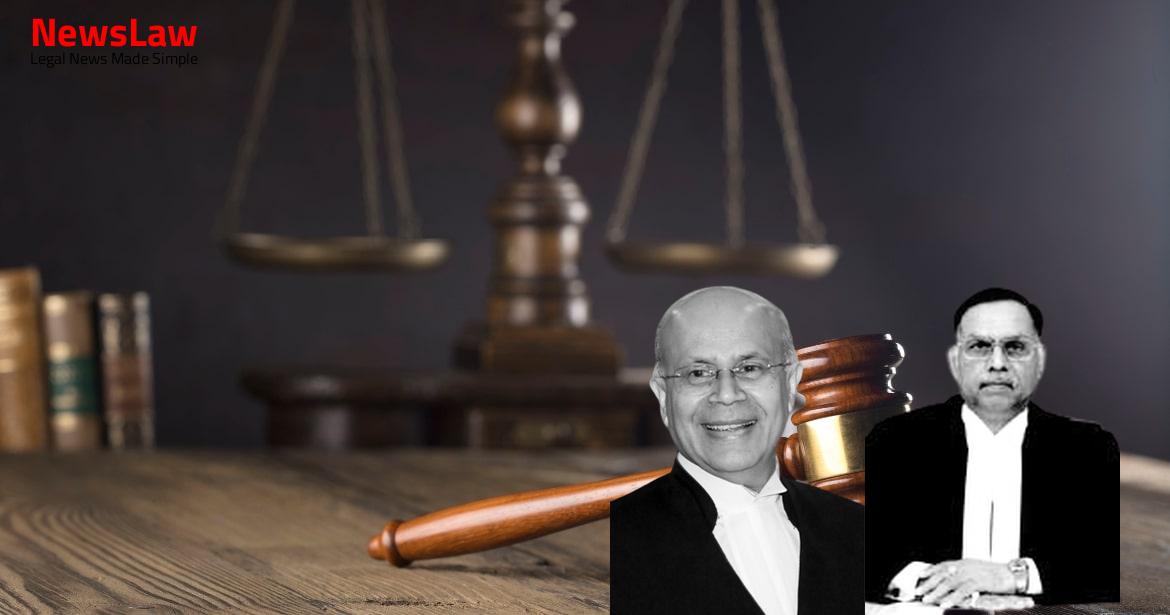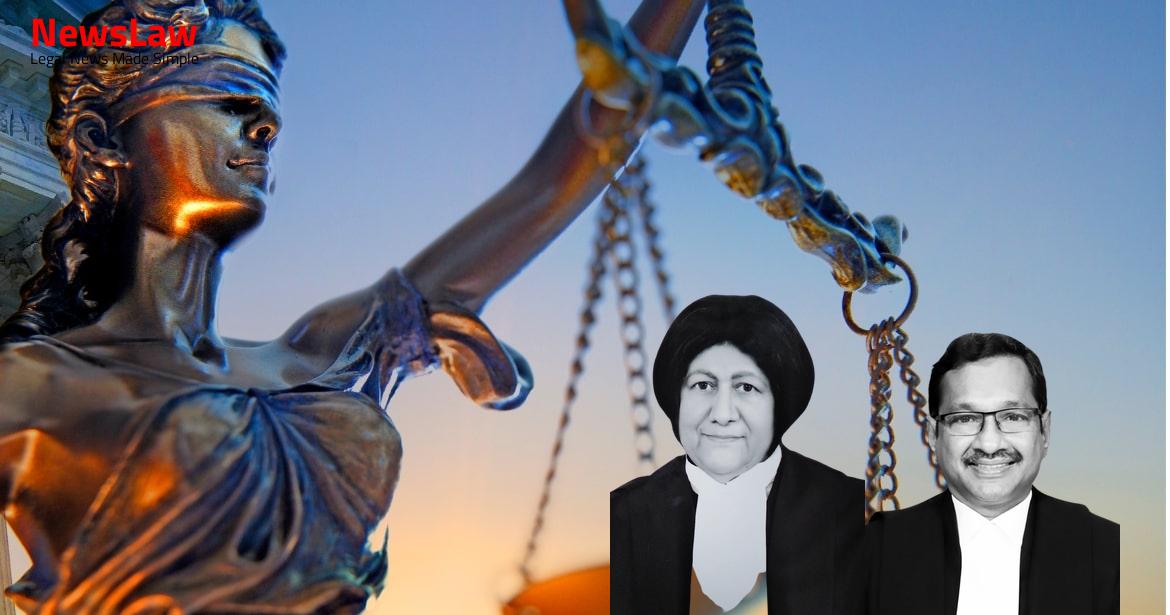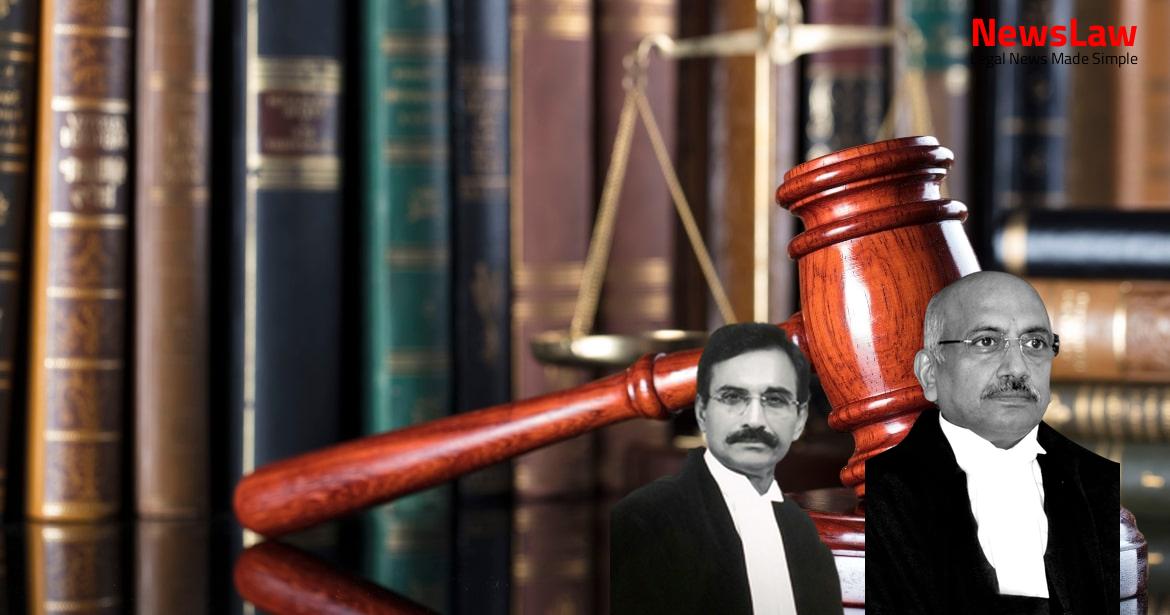In a significant legal battle over property ownership, the Supreme Court of India recently delivered a judgment in the case involving Anadi Dutt and Rajvindar Singh. The dispute revolved around the execution of a sale agreement and subsequent possession issues. The court’s decision has far-reaching implications in resolving land disputes. Let’s delve into the details of this case and the Supreme Court’s ruling.
Facts
- An agreement for sale was executed by Anadi Dutt in favor of Rajvindar Singh and Shamsher Singh for premises No.15.
- Legal disputes arose regarding the property ownership leading to various suits and execution proceedings.
- Anadi Dutt did not execute the sale deed as per the agreement, resulting in further legal actions by Rajvindar Singh and Shamsher Singh.
- The Court Bailiff, with police assistance, delivered possession of the premises to the Decree Holder after several attempts.
- The court held that the claim of acquiring title by adverse possession was not proven by the party involved in the case.
- Respondent No.1 filed a first appeal, FMA No. 720 of 2005, against the rejection of Misc. applications.
- Calcutta High Court allowed the appeal by setting aside the order of the Executing Court.
- The High Court directed that Respondent No.1 should be put back into possession of the suit property.
- Appellant (Respondent No.1) appealed against the High Court’s judgment.
Also Read: Dispensation with Personal Appearance in Criminal Case: Landmark Judgement by Supreme Court of India
Arguments
- Shri Debal Banerji, learned senior counsel for the appellant argues that the Executing Court rightly rejected the application of ARG_PETITIONER under Order XXI Rules 98, 99, and 100 CPC due to failure in proving title over the suit premises.
- Appellants were put in possession of the property through the execution of a court decree.
- Executing Court correctly found that ARG_PETITIONER failed to establish title by adverse possession, leading to the rejection of the application.
- T.S.No.211 of 1990 filed by ARG_PETITIONER for a declaration of title based on adverse possession was dismissed on 16.03.2009.
- Respondent established possession prior to dispossession, which was sufficient for reinstatement
- High Court did not err in reinstating appellants into possession
- Appellants obtained fraudulent decree against the wrong person claiming to be the son of the deceased
- Decree in favor of appellants was never challenged by anyone, including the real son of the deceased
- High Court erred in not considering whether appellants obtained title through adverse possession
- Several documents were filed by respondent to prove possession prior to dispossession
- Respondent had acquired possessory title through long possession
- High Court made an error in allowing the appeal without valid grounds
Also Read: Case of Unnatural Death in Matrimonial Home: Supreme Court Judgment
Analysis
- Order 21 Rule 97 deals with cases of resistance or obstruction to possession of immovable property.
- Order 21 Rule 36 deals with giving symbolic possession in cases where the tenant is in actual possession.
- Order 21 Rule 97 requires the court to adjudicate on complaints of resistance to delivery of possession.
- After the 1976 amendment, disputes related to property must be determined in execution proceedings itself under Rule 101.
- A person claiming possession must prove their right, title, or interest in the property under Rule 101.
- The amendment in Order 21 Rules 97 to 103 in 1976 limited the need for separate suits for claiming rights in execution proceedings.
- An applicant must establish their right, title, or interest in the property to be put back in possession under Rule 101.
- Resistance by a third party in possession claiming independent rights must be adjudicated under Rule 101.
- The purpose of amendments is to conclude all disputes relating to the decretal property in execution proceedings.
- High Court errors in not deciding on issues like resistance or obstruction of possession in execution proceedings.
- Under Order 21 Rule 101, all disputes between the decree-holder and any person are to be adjudicated by the executing court, to the exclusion of all other persons.
- Decree for permanent injunction can be issued to restrain the defendant, their agents or representatives, from interfering with the plaintiff’s possession of the specified property.
- Orders made under Rule 98 or Rule 100 are treated as decrees and are conclusive, subject to the result of any suit filed by a party not being the judgment-debtor.
- The court has jurisdiction to decide questions related to right, title, or interest in the property arising between the parties to the proceeding on an application under Rule 97 or Rule 99.
- Rule 97 addresses resistance or obstruction faced by the holder of a decree for possession of immovable property.
- The decree-holder is entitled to assistance from the court in obtaining possession if faced with resistance or obstruction from any person.
- The aim of amending provisions in Order 21 was to enable third parties to assert their rights in execution proceedings and prevent delays in the execution of decrees.
- In the case of Bhag Mal v. Ch. Parbhu Ram, it was held that a decree-holder cannot be dispossessed in execution of the decree.
- The case of Silverline Forum Pvt. Ltd. Vs. Rajiv Trust and Another dealt with provisions of Order XXI Rules 97, 101, 102, and 103 as amended by the Code of Civil Procedure (Amendment) Act, 1976.
- In proceedings under Order XXI Rules 99, 100, and 101, right, title, or interest must be determined to claim possession.
- Mere prior possession does not suffice to be put back into possession without establishing right, title, or interest.
- To be put back into possession, the claimant must establish title to the property through adverse possession.
- The High Court erred in allowing the appeal as the claimant failed to establish title by adverse possession.
- The Executing Court rightly rejected the application for possession filed by the claimant.
Also Read: The Jodha Ram vs. Kaushaliya Dispute: Supreme Court Judgement Summary
Decision
- The appeal is allowed, setting aside the High Court’s judgment and restoring the order of the Executing Court.
- Each party is to bear their own costs.
- Suit No.211 of 1990 filed by the petitioner seeking declaration of title by adverse possession was dismissed on 16.03.2009, with no steps taken for restoration of the suit.
- No error was found in the order of the Executing Court, and the High Court erred in directing the petitioner to be put back into possession.
Case Title: SAMSER SINGH .AND ANR. Vs. NAHAR SINGH(D) THR. LRS . AND ORS.
Case Number: C.A. No.-005632-005632 / 2019



